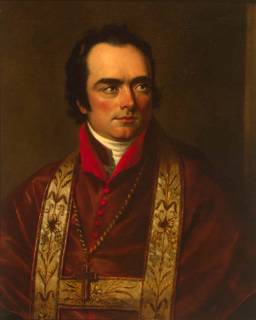Dad And The Nature of Art

Dad 
My father is an exceptional man. I’ve never known anyone as patient, caring or responsible. He never talks about love, that language is unavailable to him, but he "lives" love with absolute fidelity, and that thought brings me to a discussion of art.
I've been told that art is entirely a collaborative process. It includes what the artist intended as he created the work of art, then what the work of art actually communicates apart from the artist's intentions, and finally art becomes what is interpreted through the lens of the observer's experience and personality.
However, we seldom look at art that way. Almost universally we give pride of place to the artist as the genius who transcends the experience of art. Somehow we fail to realize that "War and Peace" is not the same book for any two different readers, and it's possible that "War and Peace" conjures truths for a gifted reader that Tolstoy himself never fully appreciated. That prejudice in favor of the artist turns the work of art, no matter how exquisite, into simply a medium, while it makes the observer of art derivative – someone whose capacity for art is judged solely by how well he appreciates the original intention of the artist.
I remember taking a class in art history years ago. The students sat in darkness while our instructor clicked away with a device that controlled a slide projector. There would be a short mechanical sound followed by an image projected on a screen. Early in the semester we viewed slides of Egyptian jewelery, Greek statues and Renaissance paintings which combined art with obvious craftsmanship.
It was easy to see the craft, even if the more subtle reality of art went completely undetected. After all, we were beginning students, and craft was much easier to appreciate than the more subtle characteristics of "art." It was only with time that we began to realize that craft was simply a sort of expertise - a manual aesthetic competence. Genuine art, on the other hand, was a spiritual vocabulary that expressed something true and original about being human.
Late in the semester, when we got to the modern period, the images became ever more abstract. These modern works had everything to do with art, and very little to do with craft. Beyond the ability to pair a name with a particular work of art, it was this sensibility that our instructor was hoping to inform. And so, for our final examination, we were shown a series of slides; some were of well crafted objects, and some were of objects that were haphazardly abstract. The question we were expected to answer was, “Which of these objects are art, which are not, and why?”
For me it was a revelation that in most instances I could see the difference. I understood that while craft and art often went hand in hand, on many occasions they did not. Some objects might be well crafted, but have absolutely nothing important to say. They could be a fine representation, well sculpted or well painted, but they certainly were not art.
Then there might be a painting by Miro or Pollock, something that didn't require very much technical skill, but these works had something astounding to say. They communicated a profound truth that was beyond my ablility to fully understand. Yet while their art was immune to easy explanation, it could be put on a wall and I would never tire of looking at it. What they did was art.
Eventually I asked myself, “How is art defined? What are the rules that allow you to point to one thing and say this is not art, and point at something else and say this is art?”
It didn't take long for me to give up on that quest. If there is such a set of rules, I have no idea what it might be. Maybe the only real answer is that “Art is whatever an artist does.”
This might sound silly and almost tautalogical. However there is a kind of truth in that statement that has become ever more real and obvious to me with time.
Yet, there is one other thing I 've leared about art that isn't quite so oblique. That truth is that there is a huge difference between creating art, appreciating art, and living art.
A person like Picasso could create art, but he couldn't live it. Great artists always have a sure grasp of what is true and human, but they often live lives of narcissism and self involvement. Picasso could paint a woman using techniques that were elementary, but what he rendered was the portrait of something wonderfully intangible. He found a way to desribe someone's soul. Still, even with all that artistic grace and astounding insight he treated the women in his life with unthinking cruelty.
Ultimately his life became a sad contradiction to his art.
By way of a long metaphor, this brings me back to dad. Perhaps living a good life - a life that is characterized by love - is very much like what art seeks to emulate. There are those who can exquisitely describe what love means with well chosen words, a musical instument, or a brush and a palate of paint. And then there are those who can appreciate and understand love, even if they can't describe what it is that they see. These are the fortunate legions who are affirmed and redeemed by love.
And finally there are those who actually are the music. These are the people whose lives are a pure expression of love in all its routine majesty.
Yet it is a sad fact that all these qualities are seldom packaged in the same person. An artist with a palate of colors is seldom an artist with life.
So ultimately this is the question, "Is the most important actor in the experience of art the artist himself?"
I don't think so. At the end of the day, the world might be a less rich and interesting place without poets, but the world could do just fine without them. However, it would less easily survive without those whose hearts can be moved by what poetry has to say, and it would be lost forever without those people whose exquisite lives are the very reason that poetry exists.



